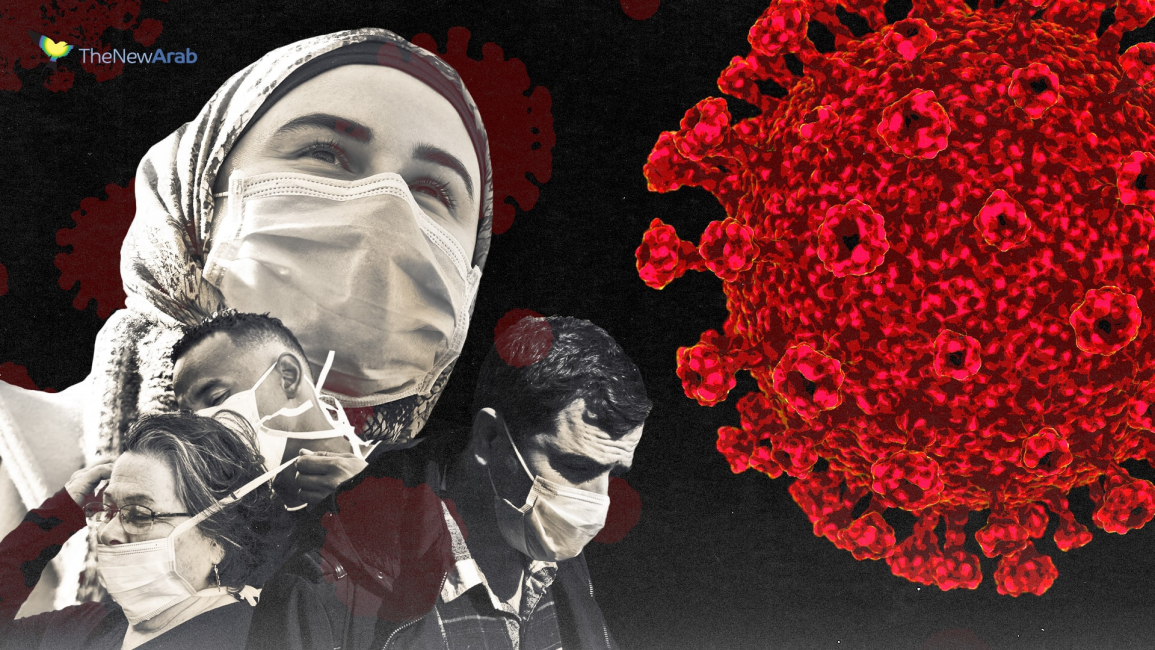Follow us on Facebook, Twitter and Instagram to stay connected
The Middle East at war with coronavirus: Top stories from 27 May
1. Fifteen Syrian refugees in Lebanon test positive for coronavirus
"There are 15 confirmed cases of Covid-19 among Syrian refugees in Majdal Anjar," a town in the Bekaa Valley, said Lisa Abou Khaled of UNHCR, the UN's refugee agency.
Lebanon has officially recorded 1,140 novel coronavirus cases, including 26 deaths.
Before the outbreak in Majdal Anjar, only one other Syrian refugee in Lebanon had tested positive for coronavirus, UNHCR says.
Among Lebanon's Palestinian refugee population, at least six cases have been detected in a camp in the Bekaa Valley.
|
||
Read more here
"The Ehteraz app's user privacy and platform security are of the utmost importance. A comprehensive update of the app rolled out on Sunday 24 May with expanded security and privacy features for all users," Qatar's Ministry of Public Health wrote in a statement on Twitter, addressing the issue.
"These updates are part of the continuous work to review and improve the app's security, including issues brought to our attention by third party groups.
"#EHTERAZ is a vital component in our collective fight against COVID-19 and we thank #Qatar's citizens and residents for their cooperation," it added.
Ehteraz, the name of the app, is an Arabic word that means 'caution/safety'. With over 20,000 confirmed cases, Qatar has been hit hard by the coronavirus pandemic, but has managed to keep death rates low with stringent lockdown and testing measures.
Amnesty International had raised concerns saying it found the contact tracing app exposed users' ID numbers, location and infection status, making the information vulnerable to hackers.
Read more here.
3. Egypt pro-Sisi media launch revenge campaign against doctors after coronavirus complaints
Egypt's pro-regime media have launched a campaign against doctors fighting Covid-19, after the country's largest medical union published a strongly-worded statement this week accusing the health ministry of "negligence", resulting in the deaths of medics from coronavirus.
The Egyptian Medical Syndicate (EMS) on Monday warned that "the health system could completely collapse, leading to a catastrophe affecting the entire country", as a result of the government’s mismanagement of the coronavirus pandemic.
On Sunday, four doctors died from coronavirus without any treatment. By contrast Egyptian singer Amr Diab and actress Ragaa Al-Gadawi received immediate medical care when the suspected they had the virus.
|
||
Many doctors have resigned or gone on strike to protest the government negligence they are suffering from and unsafe working conditions, after some were forced to treat Covid-19 patients without personal protective equipment.
As a result pro-Sisi social media, as well as members of Egypt's rubber-stamp parliament, have made incendiary accusations against doctors and called on people to boycott them.
The Arabic news website Arabi 21 reported that threats had been made on social media to kill any doctor who went on strike.
4. Jerusalem's Al-Aqsa to reopen as coronavirus measures relax
The Al-Aqsa Mosque compound in Jerusalem will re-open Sunday after a two-month closure due to the novel coronavirus, a senior official said Wednesday.
"All the doors of the Al-Aqsa mosque (compound) will be opened at dawn on Sunday," Omar al-Kiswani, the mosque's director, told AFP.
Details of the reopening of the mosque have not yet been finalised, including whether the site will be opened to worshippers or if the public will only be allowed into the courtyard outside.
The compound, located in Israeli-occupied east Jerusalem, closed its doors in March as part of measures to limit the spread of the novel coronavirus.
Religious sites in Jerusalem began to re-open in recent days as the reported number of new cases declined, but the Al-Aqsa Mosque compound remained shut during the Eid Al-Fitr festival that began on 24 March for most Muslims and marks the end of the holy fasting month of Ramadan.
Read more here.




